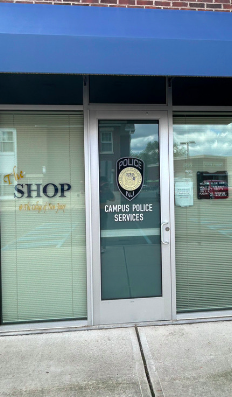By Alexus Twyman
Whether receiving a minor scratch from a pet or accidentally spraining a leg on a morning jog, there is one thing that everybody wants: quality healthcare. Receiving healthcare in a prompt and efficient manner can either be life-changing or life-saving.
However, disparities in healthcare services can persist and often interfere with patients’ access to services. The healthcare industry can sometimes take implicit biases from American society, in turn affecting how certain groups are treated, according to the National Library of Medicine.
Typically, differences in health outcomes are more likely to happen to marginalized groups, such as people of color, women, people with disabilities, members of the LGBTQ+ community and individuals of lower socioeconomic status. These differences can lead to patients receiving a substandard level of care, even possibly result- ing in serious injury or death.
An area impacted by outcome disparities is maternal health, with the increased rate of maternal mortality for women of color becom- ing even more of a concern after the Supreme Court’s controversial overturn of Roe v. Wade in 2022. As reported by USA Today, some of the states with the highest mortality rates for pregnant Black and Latina women include New York and New Jersey.
Another compounding factor on these disparities is having an intersectional identity, such as be- ing both a Black person and a woman. According to John Hop- kins Bloomberg School of Pub- lic Health, Black women are “two to three times more likely” to die due to complications of pregnancy than white women, regardless of their individual education level. To help combat these concerns, in 2023, New Jersey Governor Phil Murphy signed Bill A-5516, requiring certain healthcare profes- sionals to undergo bias training. This bill serves as an unofficial update to Bill S703, signed in 2021 that would require only maternal healthcare providers to take bias training.
In Trenton, there are multiple organizations examining the root causes of maternal mortality and hoping to spark a conversation and start change. One such organization is the capital city’s own Trenton Health Team, which aims to work “toward equity” through “ad- dressing community conditions, social justice, and bias,” according to the organization’s website. Originally beginning as a response to the closure of Mercer Medical Center in the early 2000s, Trenton Health Team formed to improve the health of Trenton residents and provide quality healthcare.
Additionally, recent developments earlier this year point towards the construction of a new maternal health center in Trenton as a part of New Jersey First Lady Tammy Murphy’s wider Nurture NJ campaign. Launched in 2019, the campaign, focusing on pregnancy and post-partum related care, looks to provide supportive environments for women to ensure their health needs are met.
As healthcare disparities continue to impact marginalized individuals, more local organizations are focused on spreading awareness to the wider Trenton community about maternal health resources. New initiatives, such as bias train- ing legislation and efforts from organizations, aim to address these concerns and allow for greater access to care for all residents.





